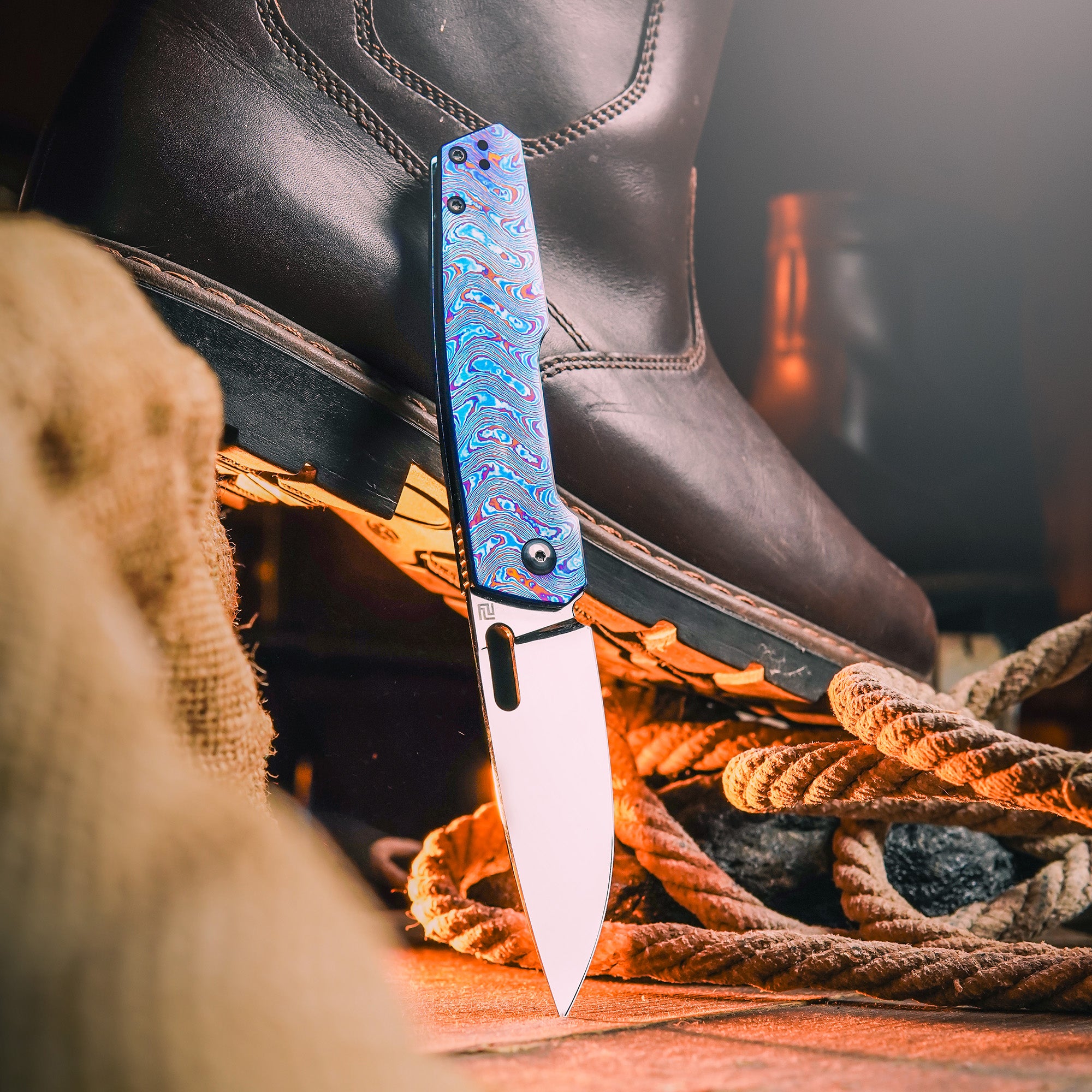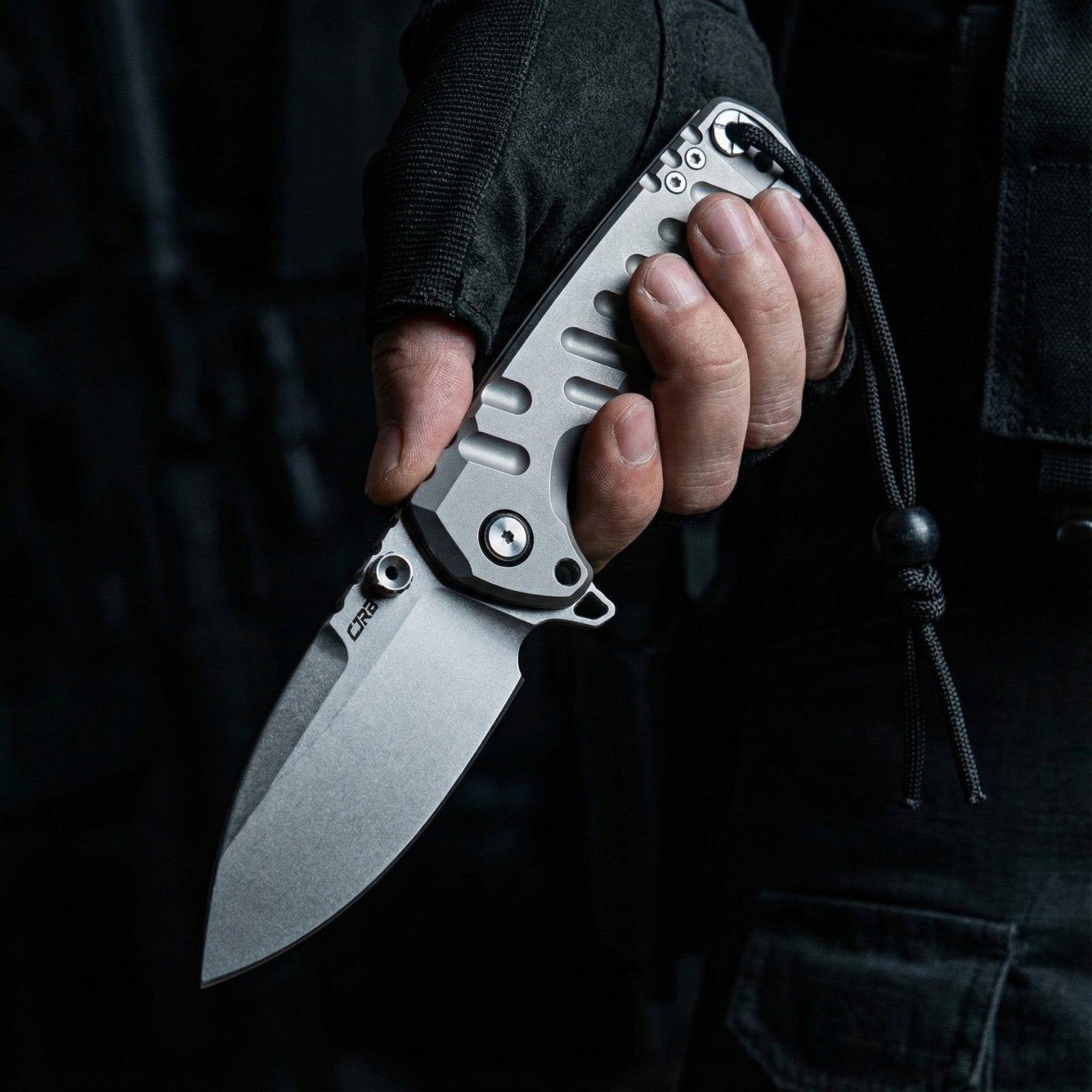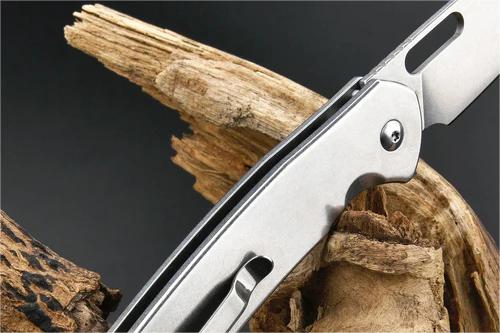
Dulling the Blade Edge
The first major issue with washing knives in the dishwasher is that it can quickly dull the blades. As knives tumble around during the wash cycle, they bump against dishes, the racks, and each other. This constant blunt force contact chips away at the sharp cutting edges, especially on knives made from softer grades of steel. Over time, this erosion wears down the blades until regular sharpening can no longer restore the fine edge.
Corrosion and Rust
The hot, moist environment inside a dishwasher also promotes corrosion and rust. While stainless steel knives resist rust better, they can still develop surface stains. Carbon steel blades used for many high-quality knives are especially vulnerable. When exposed to dishwasher detergents for prolonged periods, pits and rust spots start to form. These marks cannot be removed by sharpening and impact performance.
Handle Damage
Not only do dishwasher cycles dull and discolor blades, they can also damage knife handles. Fading, cracking, and warping often occur in handles made of wood, plastic, or composite materials. The combination of high heat, moisture, and physical impact breaks down adhesives and protective seals. Over time, handles degrade to the point where rehandling or replacement becomes necessary.

Impact on Dishwasher
Loading sharp knives in the dishwasher also poses risks to the appliance itself. As blades collide with dishwasher racks and walls, chips and scratches accumulate. Significant damage can impact washing performance or even require repairs or replacement of racks. Accidental stabbing into rubber seals may cause water leaks.
Safety Concerns
Sharp knives and the dishwasher environment form an unpredictable, hazardous combination. Reaching into steamy appliance interiors brings the possibility of accidental cuts from hidden blades lying among dishes and utensils. Lower visibility and slippery conditions heighten risks. Knives falling from racks or loose blade covers can also cause injuries.
Impact on Knife Longevity
Using the dishwasher excessively shortens the usable lifespan of both low and high-end knives. Weakening from corrosion, dulling effects, material breakdown, and physical stresses combine to degrade the entire knife. Expensive, high-quality knives become useless investments rather than heirlooms lasting decades. Even cheap knives require continual replacement instead of years of use.
While the dishwasher may offer an easy cleaning solution, the convenience comes at a cost for knives. Dulling, corrosion, damage, safety hazards, and reduced longevity provide compelling reasons to stop this practice. Hand washing, careful storage, and proper sharpening keep knives in optimal condition for food preparation and service while avoiding dishwasher risks. By following these best practices, your knives will maintain integrity and performance for many years while ensuring your dishwasher serves only clean dishes.

Q&As
Q: Are there dishwasher-safe knives available? What makes them different?
A: There are knives labeled as "dishwasher-safe," but hot washes still impact their lifespan and quickly degrade budget knife materials. High-end knives made from specialized steel alloys resist corrosion better but still suffer dulling.
Q: Should ceramic knives go in the dishwasher?
A: Ceramic knives are touted for their hardness and resistance to corrosion. However, the brittle ceramic material can still chip or crack from the forceful impacts against other utensils and dishwasher interiors during wash cycles. Handwashing is still best to preserve their integrity.
Q: What about serrated knives? Are they dishwasher-safe?
A: The tiny serrations that give these knives their slicing ability are vulnerable to damage from dishwasher detergents and blunt forces dulling and flattening the delicate edges. Skipping the dishwasher preserves the sharpness for much longer.
Q: Are the risks lower for hand wash and sanitize cycles?
A: Even gentle hand wash or sanitize cycles pose risks from longer detergent exposure, degrading materials, and knife-on-knife contact dulling blades. Brief hand washing minimizes damage for peak knife performance.
Q: Can expensive kitchen knife brands handle dishwashers safely?
A: Even top-end kitchen knives utilize thinner, sharper blades and precision handles vulnerable in hot, damp, and forceful dishwasher environments. Gradual damage occurs despite their resilience, warranting gentle hand washing.
Q: Why aren't stainless steel blades impervious to dishwashers?
A: Commercial stainless steel alloys provide excellent stain and corrosion resistance. However, surface etching, pitting, and blade-edge dulling still slowly build up from chemical and physical stresses during hot dishwasher cycles.
Q: Do self-cleaning knife block sets allow dishwasher use?
A: Self-cleaning knife blocks utilize antibacterial lights, not water and detergent. The specialized knives may boast corrosion resistance but still require delicate care as any quality cutlery. Dishwashers remain too harsh.










Leave a comment
All comments are moderated before being published.
This site is protected by hCaptcha and the hCaptcha Privacy Policy and Terms of Service apply.